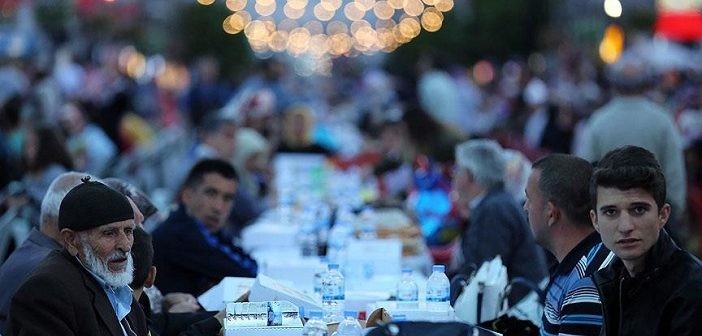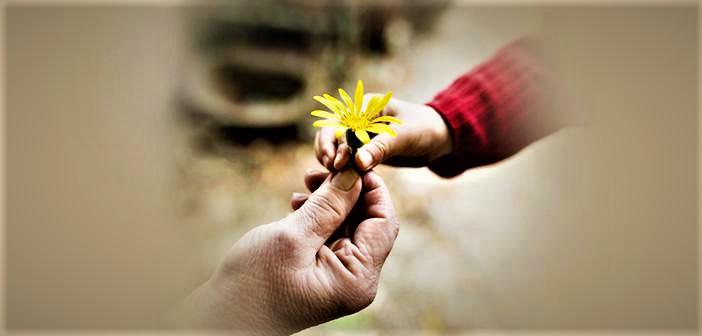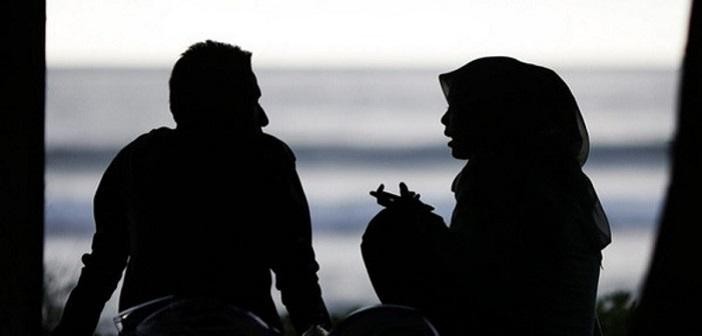
Fasting Against the World: Being a Traveler
The word “sā’ihūn” in the Quran refers to travelers. Mentioned in Surah At-Tawbah, this term describes a group of believers who are praised alongside those who repent, worship, praise Allah, bow and prostrate, enjoin good and forbid evil, and observe the limits set by Allah.
Some Quranic commentators have interpreted “sā’ihūn” as “sā’imūn” (those who fast). This interpretation is clearly influenced by the narration from the Prophet Muhammad (peace and blessings be upon him): “Sā’ihūn are those who fast.” Those who favor this explanation also take into account the statement narrated from Aisha (may Allah be pleased with her): “The journey of this Ummah is fasting.”
Others have interpreted “sā’ihūn” as “those who engage in jihad,” “those who migrated from Mecca to Medina,” “those who travel for knowledge,” or “those who set out to seek and reflect on the signs of Allah’s unity and power.” The Diyanet’s Tafsir of the Path of the Quran lists these meanings and then succinctly defines the term as “those who live in this world as travelers.” This interpretation beautifully connects fasting and travel, aligning it with the Prophetic advice to live in this world as strangers or travelers.
Life in this world is a journey. Like everyone else, we are not permanent in this transient realm. Our journey is meant to return to our true home. Life has been given to us to regain our worthiness for that abode of peace. Therefore, our primary goal is to make our temporary life in this world a school of taqwa (God-consciousness) and to ensure that our final breath is taken as Muslims. In this sense, our journey is one of spiritual growth and perfection. Our guide is the Prophet Muhammad (peace and blessings be upon him), whose advice, “Be in this world as if you were a stranger or a traveler,” points to the attitude we should adopt during this journey.
Being a traveler or a stranger refers to a psychological state. A traveler seeks to reach their destination as soon as possible; thus, they are content with little, avoid distractions, and limit their attachments to people and things, knowing they will not stay forever. Their heart and mind are preoccupied with their destination. They are somewhat apprehensive because they have left their comfort zone. Travel, in this sense, is a state of deprivation. This is why travelers are granted concessions in their prayers and fasting. The goal is for the traveler to reach their destination quickly, end their journey, and attain a permanent state.
Living as a traveler or a stranger also means being constantly vigilant. A traveler is somewhat cautious and disoriented, careful not to disturb the place they are visiting. They live as if on the edge of a cliff. Isn’t this worldly life exactly like that? The world is a cliff we walk along, and it is astonishing how some fall in love with it, even as it pulls them into its abyss. The anxiety of potentially falling at any moment is the provision for staying safe from this abyss. Just as one walks cautiously along the edge of a cliff, one should adopt a similar attitude in worldly life. The advice, “Be a traveler or a stranger,” is meant to instill this state of mind.
A traveler’s concern is to return home as soon as possible, for they feel like strangers in exile and at ease in their homeland. Since this world will never be our true home, we should all live like soldiers awaiting discharge, avoiding the demeanor of permanent residents in our actions and behavior. But how can we achieve this? We acknowledge that we are in exile, and though we may struggle to accept it, we know that death will eventually find us. How will we rid ourselves of this ingrained sense of belonging? How will we attain the commendable state of being a stranger, as the Prophet (peace and blessings be upon him) compared this worldly life to a traveler resting briefly under a tree?
We are in exile, but our concern is not merely to leave this place quickly but to leave with honor. We desire to return to the abode of peace, to become worthy of it once again. However, the dungeon we are placed in binds us more tightly with each passing second. This place becomes more familiar, more beloved, and harder to leave with every moment. How will we transform each passing second from a chain binding us here into a means of drawing closer to our true home? Ramadan and fasting are the blessed school where we find the answers to these questions, where we are trained to replace the temporary sense of belonging in this world with the fragrant state of being a stranger and traveler focused on the Hereafter. In other words, Ramadan is a spiritual camp where we strive to make the attitude of being a stranger our permanent state.
Fasting, which means abstaining from something or depriving oneself, reminds us that we are travelers in this worldly life. The month of Ramadan, with its blessed climate and the psychology of being a stranger, instills in us the state of mind we must maintain until our final breath. Just as a traveler is a stranger, anxious to reach their destination, a fasting person is in a state of calm and stillness due to hunger and thirst. The psychology of fasting teaches us that living as a stranger in this world is the most beneficial state to adopt, for its end result will be eternal joy, like the joy of breaking a fast.
Ramadan is a season of vigilance. The state we are trained in is the state of being a stranger or traveler, as chosen by our beloved Prophet (peace and blessings be upon him). Just as a traveler becomes vigilant, focuses on their destination, and attends only to essential needs, we too should experience a concentration on worship, servitude, and taqwa during Ramadan, entering a state of vigilance. The goal is to live the rest of our lives in a similar state of vigilance and to attain an end where our final breath is filled with the joy of Eid. Ramadan, with its three segments of mercy, forgiveness, and salvation, is a golden opportunity to achieve this goal. The first ten days bring the mercy that is the source of spiritual delights, the second ten days bring forgiveness as the remedy for otherworldly concerns, and the last ten days bring salvation as the means of deliverance from sins.
The Prophetic statement, “Woe to the one who completes Ramadan without having their sins forgiven!” (Tirmidhi, Da’awat, 100), implicitly warns that there is no excuse for someone who spends an entire month in suhoor, fasting, charity, worship, recitation, reflection, remembrance, iftar, and Tarawih without realizing where this journey is taking them. Those who are aware of their journey and fulfill its requirements will not only experience the joy of being among the forgiven on Eid morning but will also gain the formula for living the rest of their lives in the desired direction. The state of vigilance in Ramadan is meant to help us live our entire lives in the spirit of Ramadan. Those who succeed in this will have their final breath as a celebration of Eid.
Fasting is the antidote to living in exile with the demeanor of a permanent resident. What suits us is the state of being a stranger. From the moment we open our eyes, the world we love, with its air, water, and blessings, revives us, but only by adopting the attitude of a stranger can we remain safe from it. If every moment we spend in exile binds us more tightly to this place, making us more like its inhabitants, then woe to us. The opposite should be the case. We must make every passing moment of our lives a means of drawing closer to our true home, to reunion. Ramadan is the camp where we learn the formula to overcome this profound contradiction. Without living as travelers and feeling the strangeness of exile, we cannot catch the scent of our true home. Fasting, as a training in strangeness and deprivation, erases the foreign attitude that binds us more tightly to the world with every breath and makes us travelers who, with every breath, move closer to reunion with our true home.
Fasting is a shield that protects us from the allure, distractions, and trials of this world. The Prophet (peace and blessings be upon him) taught us this when he said: *“Fasting is a shield. The fasting person should not behave obscenely or foolishly. If someone fights or insults them, they should say, ‘I am fasting,’ twice. By the One in whose hand my soul is, the breath of a fasting person is more pleasing to Allah than the fragrance of musk. (Allah says): ‘They have left their food, drink, and desires for My sake. Fasting is for Me, and I will reward it. Every good deed is rewarded tenfold.’” (Bukhari, Sawm, 2). Here, the Prophet (peace and blessings be upon him) emphasizes that fasting is a shield and discusses the importance of protecting it.
Fasting as a shield primarily protects us from the world. It trains us not to adopt the demeanor of permanent residents in exile or to act like owners in a rented property. In this sense, fasting is a psychological training in how to stand against the world. The Prophetic statement, “Fasting is half of patience,” explains which virtue we need most in this training. On the other hand, fasting is also a shield against Satan, the ego, and their allies, who seek to drag us into the world. Most importantly, fasting is a shield against Hellfire, as it is a means of mercy, forgiveness, and salvation from sins. The sincere students of the Ramadan school, who continue their lessons in fasting, will gain the lifelong psychology of remaining safe from the exile of this world and the fire of Hell. This understanding will make them among those who are blessed with the glad tidings, “How fortunate are the strangers,” ensuring they are free from fear and sorrow in this world and the Hereafter, by the will of Allah Almighty.
Mehmet Lutfi Arslan












